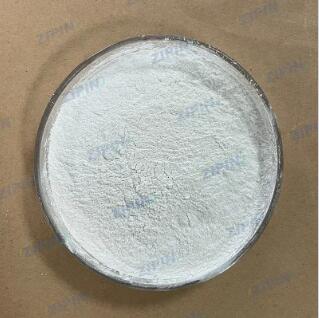Exploring the Potential Therapeutic Properties of Beta-Caryophyllene
2024-03-18
Beta-caryophyllene, a natural compound found in various plants and essential oils, has garnered significant attention in recent years for its potential therapeutic properties. From its anti-inflammatory effects to its neuroprotective properties, beta-caryophyllene offers a wide range of potential health benefits. Let's delve into the exciting realm of beta-caryophyllene and explore its therapeutic potential.
Anti-Inflammatory and Analgesic Effects:
One of the most well-documented therapeutic properties of beta-caryophyllene is its anti-inflammatory and analgesic effects. Research suggests that beta-caryophyllene can help alleviate inflammation and reduce pain by interacting with the body's endocannabinoid system. By activating CB2 receptors, beta-caryophyllene may modulate immune response and inflammatory pathways, making it a promising candidate for conditions such as arthritis, inflammatory bowel disease, and neuropathic pain.
Neuroprotective Benefits:
Beta-caryophyllene has also shown promise in protecting against neurodegenerative diseases and supporting overall brain health. Studies have demonstrated that beta-caryophyllene exhibits neuroprotective effects by reducing neuroinflammation, oxidative stress, and neuronal damage. This makes it a potential therapeutic agent for conditions like Alzheimer's disease, Parkinson's disease, and multiple sclerosis, where inflammation and oxidative stress play significant roles in disease progression.
Antioxidant Properties:
As a potent antioxidant, beta-caryophyllene can help combat oxidative stress and protect cells from damage caused by free radicals. By scavenging free radicals and reducing oxidative damage, beta-caryophyllene may contribute to overall cellular health and longevity. Its antioxidant properties make it valuable in supporting cardiovascular health, reducing the risk of chronic diseases, and promoting healthy aging.
Gastroprotective Effects:
Beta-caryophyllene has been studied for its gastroprotective effects, particularly in protecting the gastric mucosa and reducing the risk of gastrointestinal ulcers. Research suggests that beta-caryophyllene may help prevent gastric damage by inhibiting inflammatory pathways and reducing oxidative stress in the stomach lining. This makes it a potential therapeutic agent for conditions like gastritis and peptic ulcers.
Mood Regulation and Stress Relief:
Some studies have suggested that beta-caryophyllene may have anxiolytic and antidepressant effects, potentially contributing to mood regulation and stress relief. By modulating neurotransmitter systems and promoting relaxation, beta-caryophyllene may help alleviate symptoms of anxiety and depression. Its calming effects make it a valuable addition to holistic approaches to mental health and well-being.
Conclusion:
Beta-caryophyllene is a fascinating natural compound with a diverse array of potential therapeutic properties. From its anti-inflammatory and analgesic effects to its neuroprotective, antioxidant, and mood-regulating properties, beta-caryophyllene holds promise for addressing a wide range of health conditions. As research continues to uncover the mechanisms underlying beta-caryophyllene's therapeutic effects, it may emerge as a valuable therapeutic agent in integrative medicine and pharmacotherapy. Exploring the therapeutic potential of beta-caryophyllene opens exciting avenues for harnessing the healing power of nature's botanical treasures.



